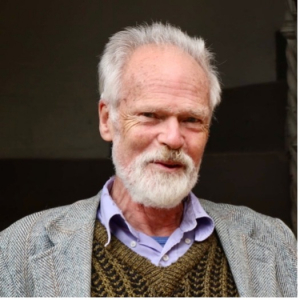#220– October 09, 2023

https://on.soundcloud.com/CWypu
On the occasion of the upcoming 80th birthday of English composer, scholar and writer Robin Holloway, Entrance: Carousing: Embarkation, is our Composition of the Week.
Entrance:Carousing:Embarkation was premiered on May 11, 1992 at the Opperman Music Hall, Tallahassee, Florida, United States, by the Florida State University Wind Orchestra under James Croft.
Finished in 1990, the work is structured in three sections played without interruption. It has a duration of around 22’ minutes and it is scored for:
4(picc).2. EHrn. 8.Ebcl.altocl.2bcl.dbcl.ssax(sopraninosax).asax(ssax).tsax.
barsax.2.dbn
/4.4.4.2euph.2/
timp-percussion (6) double bass
The music is on rental at Boosey and Hawkes
“This work was commissioned by a consortium of five American wind bands. It was sketched intermittently from 1988 but the main composing was done by Summer 1990.
Though large in scale it is simple in shape – an introduction and allegro with coda.
The introduction is, of course, the Entrance. The Carousing is the rondo allegro opened up by the entrance, its episodes, variously riotous or plangent, form islands within an overall loosely fugal texture.
At the climax the opening is regained, its elements reordered and drastically curtailed. It leads this time into a rough drinking song which expands into a final grandiose apotheosis – as if the Viking longboats were tunnelling out into stormy Northern seas, then receding into the distance over the horizon.
Entrance:Carousing:Embarkation is dedicated to Malcolm Williamson in the year of his 60th birthday.” (Program notes by Robin Holloway)
The proposed audio recording is the live broadcast of England’s premiere performance of Holloway’s work, by the Royal Northern College of Music Wind Orchestra, conducted by Tim Reynish. Along with Holloway’s premiere, the concert program also featured David Bedford’s Ronde for Isolde and Anthony Gilbert’s Dream Carousels.
Entrance:Carousing:Embarkation remains Holloway’s unique wind band piece.
Robin Holloway was a chorister at St Paul’s Cathedral and was educated at King’s College School, where his father Robert was head of the Art Department. He attended King’s College, Cambridge, and studied composition with Bayan Northcott.
In 1974, Holloway became an assistant lecturer in music at the University of Cambridge, and in 1980 attained a full lecturer position. In 1999, he became a reader in musical composition at Cambridge. He retired in 2011 as professor of musical composition. He is also a fellow of Gonville and Caius College, Cambridge. Among his many pupils are Thomas Adès, Huw Watkins, Peter Seabourne, George Benjamin, Judith Weir, and Jonathan Dove.
Holloway’s doctoral thesis Debussy and Wagner discussed a close relationship between music and language as well as romanticism and tonality. This can be heard in his own works, such as Scenes from Schumann (1969–70), the opera Clarissa (1976), and Seascape and Harvest (1983–84).
Holloway composed a large amount of music for a wide variety of performing groups, including operas, choral works, and music for orchestra, band, chamber ensembles, and voice. He has been described as a “neo-romantic” composer, reflecting his own affinity for music of the last part of the 19th and early part of the 20th centuries. While some of his works do conform to this description, others evince a more complex, nuanced, and at times ironic relationship to music of the past, verging on the postmodern. According to fellow composer David Matthews, his “individual style has been formed by a productive conflict between Romanticism and Modernism”.
Holloway contributed a regular music column to The Spectator magazine between 1988 and 2010. Two collections of his journalistic and other occasional writings have been compiled and published, as On Music: Essays and Diversions 1963–2003 and Essays & Diversions II.
More on Robin Holloway
https://www.robinholloway.info


